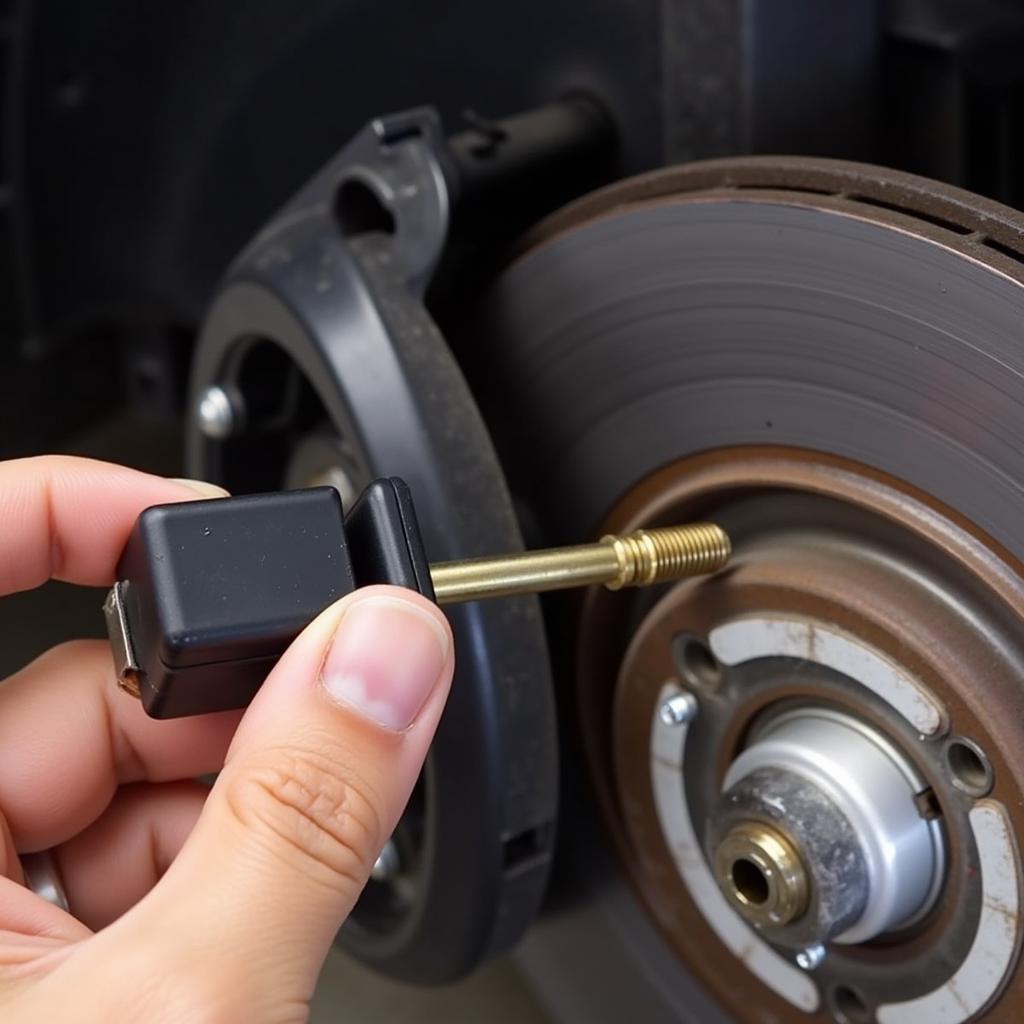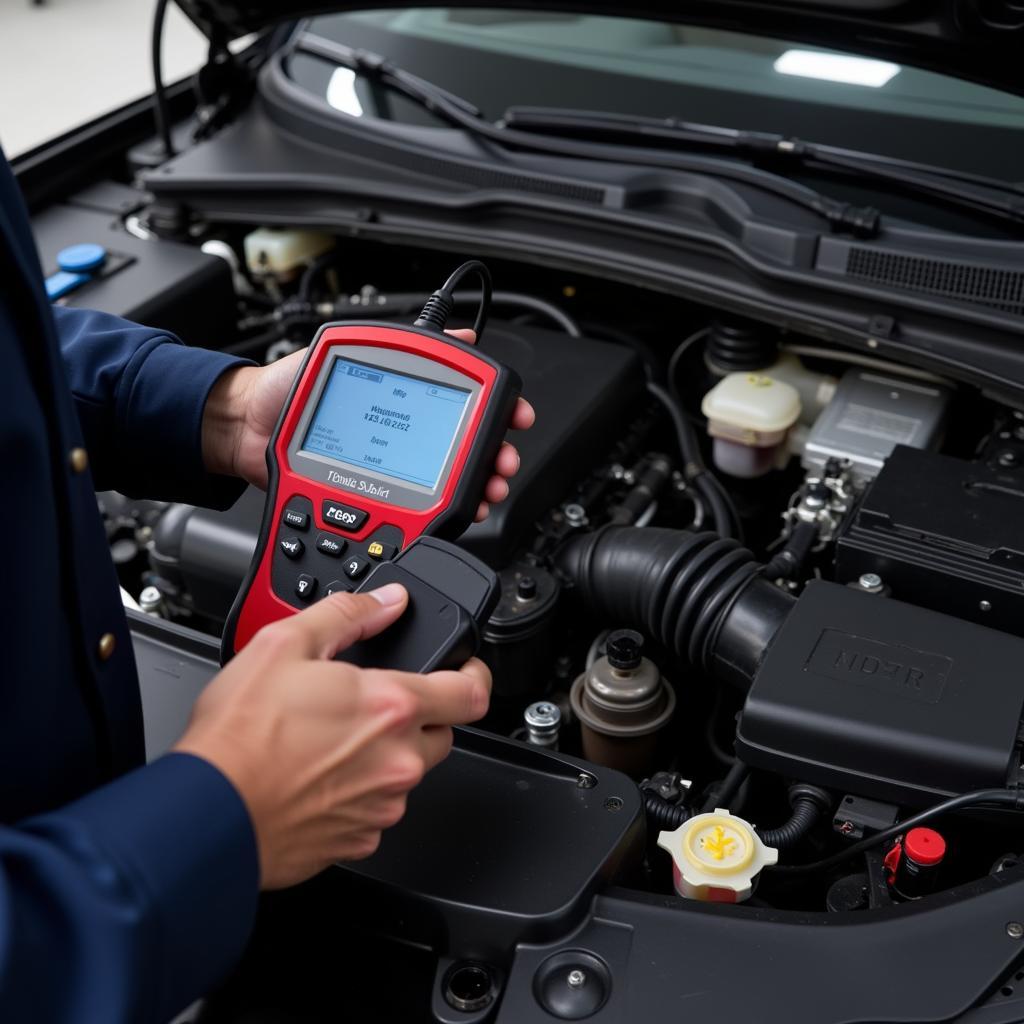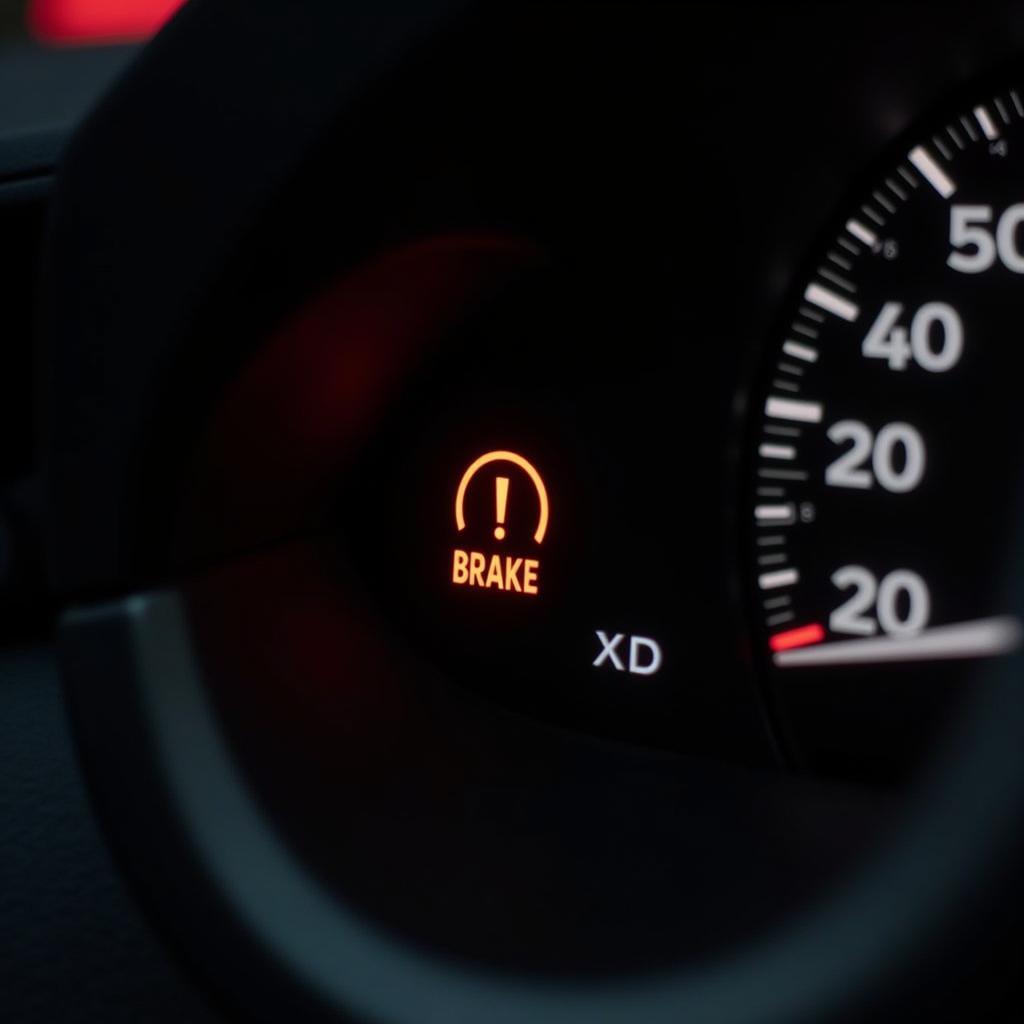The antilock brake warning light, often illuminated as “ABS” or encircled with the letters “ABS”, is a crucial component of your vehicle’s safety system. This light alerts you to a potential malfunction within your Anti-lock Braking System (ABS), which helps prevent your wheels from locking up during hard braking. Ignoring this warning could compromise your safety and ability to maintain control of your vehicle in emergency situations.
Understanding Your Car’s Anti-lock Braking System (ABS)
Before delving into the reasons behind the ABS warning light, it’s important to grasp the fundamentals of this vital system. The ABS utilizes wheel speed sensors to monitor the rotational speed of each wheel while you’re driving. When you hit the brakes, the system continuously analyzes data from these sensors. If it detects an imminent wheel lock-up, typically during hard braking or slippery conditions, the ABS automatically modulates the brake pressure to individual wheels. This rapid pulsing action prevents the wheels from skidding and helps you maintain steering control, significantly reducing the risk of a collision.
Common Causes of an Antilock Brake Warning Light
There are several reasons why your antilock brake warning light might illuminate. Here are some of the most common culprits:
- Faulty ABS Wheel Speed Sensor: These sensors play a crucial role in providing accurate wheel speed data to the ABS control module. A damaged, dirty, or malfunctioning sensor can disrupt this process, triggering the warning light.
- Malfunctioning ABS Control Module: The ABS control module acts as the brain of the entire system, processing data from various sensors and regulating brake pressure accordingly. If this module experiences electrical issues or software glitches, it can disrupt the ABS operation, leading to the warning light.
- Worn Out Brake Pads: While not directly related to the ABS, extremely worn brake pads can indirectly impact the system, potentially triggering the warning light.
- Low Brake Fluid Level: Insufficient brake fluid can also trigger the ABS warning light. Brake fluid pressure is essential for proper ABS function, and low fluid levels may indicate a leak in the system.
- Internal Hydraulic Issues: The ABS relies on a network of hydraulic components to regulate brake pressure. Issues like internal leaks or blockages within this system can also activate the warning light.
 Close-up view of an ABS wheel speed sensor
Close-up view of an ABS wheel speed sensor
Diagnosing the Problem: How to Pinpoint the Cause
Determining the exact reason behind your antilock brake warning light requires a systematic approach:
- Check Your Brake Fluid: Begin with the simplest step. Pop open the hood and check your brake fluid reservoir. Ensure the fluid level falls within the designated “min” and “max” lines. If it’s low, topping it off might resolve the issue. However, persistent low fluid levels warrant a professional inspection for potential leaks.
- Visual Inspection: Conduct a visual inspection of the visible ABS components, such as the wiring harnesses and connectors near the wheels. Look for any signs of damage, corrosion, or loose connections. If you spot any abnormalities, addressing them might rectify the problem.
- Professional Diagnostics: If the problem persists, it’s time to consult a qualified mechanic specializing in automotive diagnostics and repair. They have the expertise and specialized diagnostic tools to accurately pinpoint the source of the problem within the ABS.
 Mechanic performing a diagnostic scan on a car's ABS system
Mechanic performing a diagnostic scan on a car's ABS system
Addressing the Issue: Repair and Maintenance Tips
Once you’ve identified the culprit behind the ABS warning light, take the necessary steps to address the issue:
- Wheel Speed Sensor Replacement: If a faulty wheel speed sensor is the culprit, replacing it is a relatively straightforward procedure. However, it’s crucial to use the correct sensor compatible with your vehicle’s make and model.
- ABS Control Module Repair or Replacement: Addressing a malfunctioning ABS control module can be more involved. In some cases, a software update or repair might suffice. However, severe damage might necessitate replacing the entire module.
- Brake System Maintenance: Regular brake system maintenance is paramount in preventing ABS issues. Ensure you’re adhering to your vehicle manufacturer’s recommended brake fluid flush intervals and replacing worn brake pads promptly.
Antilock Brake Warning Light: Don’t Ignore the Signs
“Ignoring the antilock brake warning light is akin to neglecting a critical safety feature on your car,” warns John Smith, Senior Automotive Engineer at XYZ Auto Group. “It’s essential to address the issue promptly to ensure the reliability of your braking system and your safety on the road.”
Remember, a properly functioning ABS significantly enhances your safety by helping you maintain control of your vehicle during emergency braking situations. If your antilock brake warning light illuminates, don’t hesitate to seek professional assistance to diagnose and rectify the issue, ensuring your safety and peace of mind on the road.
Frequently Asked Questions (FAQs)
Q1: Can I still drive my car with the ABS warning light on?
While you might still be able to drive, your braking distance might be significantly longer, especially on wet or slippery surfaces. It’s strongly advised to address the issue promptly.
Q2: Is it safe to replace an ABS wheel speed sensor myself?
If you possess mechanical skills and are comfortable working on your vehicle, replacing the sensor is achievable. However, ensure you have the correct part and follow the proper procedures.
Q3: How much does it cost to fix an antilock brake warning light issue?
The cost varies significantly depending on the underlying problem. A simple sensor replacement might be relatively inexpensive, while a control module replacement can be more costly.
Q4: Can a low car battery cause the ABS light to come on?
While uncommon, a severely low battery can sometimes interfere with the ABS control module’s operation, potentially triggering the warning light.
Q5: How often should I get my ABS system checked?
It’s generally recommended to have your ABS system inspected annually or as part of your vehicle’s regular maintenance schedule.

